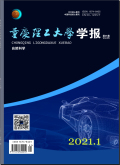重庆理工大学学报2024,Vol.38Issue(10):25-39,15.DOI:10.3969/j.issn.1674-8425(s).2024.05.003
数字技术对制造业全球价值链分工地位升级影响研究
An investigation into the impact of digital technology on upgrading the divisional position of manufacturing in global value chains
摘要
Abstract
The data generated by digital technology and its applications are significant foundations and core elements of digital economy development,as well as the primary means for a country to achieve digital transformation.They are considered the core of the fourth scientific and technological revolution.In recent years,driven by the continuous iterative innovation of digital technology and its increasing penetration into various economic sectors,the digital economy has developed rapidly and has become an inevitable choice for various economies in the world to promote economic recovery and accelerate economic restructuring.According to the data published in the China Digital Economy Development Research Report (2023 ),the scale of China's digital economy reached 50.2 trillion yuan in 2022,with a year-on-year growth of 10.3%,and the proportion of digital economy in GDP reached 41 .5%.Under the powerful drive of digital technology,the digitalization process of the manufacturing industry is constantly accelerating,and traditional manufacturing industries are transforming into high-level manufacturing industries with digitization and intelligence. The increasing penetration and integration of digital technology into the manufacturing industry chain will also have an increasingly significant impact on the participation of manufacturing industries in various economies of the world in the global value chains (GVC)specialization. To explore the impact of digital technology on the global value chains specialization of manufacturing industry,we first theoretically explains the influencing mechanism from three perspectives:labor productivity,human capital,and changes in consumer demand.Then,based on Trade in Value Added (TiVA)data from 64 sample economies between 2006 and 2018 jointly released by OECD and WTO,a two-way fixed-effects model is constructed for regression analysis,and the robustness and indigeneity of the regression results are tested. Furthermore,through the construction of a mechanism test model,three major mechanisms——improving labor productivity,optimizing the structure of human capital,and stimulating consumer demand are verified.In addition,heterogeneity tests are performed separately by classifying the sample economies according to differences in income levels,internet development levels.Finally,on the basis of research results,targeted and operable policy measures are proposed. Through theoretical analysis and empirical test,the following findings are obtained. Firstly,digital technology has a significant promotion effect on the improvement of the GVC specialization status of the manufacturing industry in the sample economies,and the conclusion remains valid after a series of robustness tests and indigeneity tests.Secondly,digital technology achieves its promotion effect on the upgrading of the GVC specialization status of the manufacturing industry in various economies mainly through three mechanisms--improving labor productivity,optimizing human capital structure,and stimulating consumer demand. Furthermore,the promotion effect shows significant heterogeneity among sample economies with different levels of internet development and income.Compared with economies with high internet development levels and high-income levels,the promotion effect of digital technology on the improvement of the GVC specialization status of the manufacturing industry in economies with low internet development levels and middle-to-low income levels is more significant. Our work has made some marginal contributions to the study of the relationship between digital technology and GVC specialization.On the one hand,the intermediary mechanism of digital technology development promoting the upgrading of GVC specialization status of the manufacturing industry was analyzed through theoretical deduction and empirical verification,which provides useful supplements to the existing impact mechanisms in academia and gives reference for subsequent in-depth research.On the other hand,the research conclusions also have important policy significance and practical value. We focus on an international perspective,paying attention to the heterogeneous effects of digital technology in economies with different levels of internet development and income,providing decision-making basis for various economies to promote the upgrading of the GVC specialization status of the manufacturing industry. Our research results on the impact of digital technology on upgrading of the GVC specialization status of the manufacturing industry in sample economies has important policy implications for China to fully utilize the"dividend"brought by digital technology in achieving digital transformation and high-quality development,and continuously enhance its position in GVC specialization of the manufacturing industry.Firstly,China should significantly enhance her digital technology innovation capabilities,accelerate the development of digital industrialization and promote the process of industrial digital transformation.Secondly,China should make louder its voice in the formulation of international digital trade rules and promote the development of digital trade.Finally,China should accelerate the cultivation of digital technology talents to improve the shortage of digital technical personnel and upgrade domestic consumption structure consistently.关键词
数字技术/制造业/全球价值链地位/人力资本/消费需求Key words
digital technology/manufacturing industry/global value chain position/human capital/consumer demand分类
管理科学引用本文复制引用
周升起,衣彩娇..数字技术对制造业全球价值链分工地位升级影响研究[J].重庆理工大学学报,2024,38(10):25-39,15.基金项目
山东省社会科学规划项目"数字贸易畅通山东国内国际双循环的机制、路径与对策研究"(22CJJJ17) (22CJJJ17)
青岛大学人文社会科学基金培育项目"全球数字价值链分工下的数字服务贸易发展研究"(RZ215046) (RZ215046)

